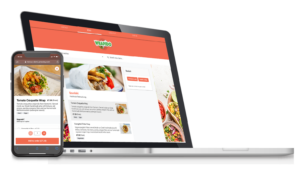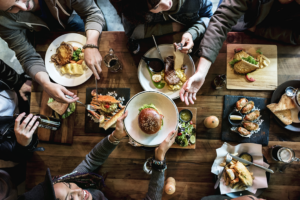This article was first written for LinkedeIn on July 30 2018. View it in its original format here.
It was interesting to read the comments recently made by Marriott’s CEO Arne Sorenson regarding where customer ownership lies in today’s digital world. He refers to a ‘war’ between the physical brands and the online giants that control the data. I’m not sure war is the term I’d use, but it is undeniable that a brand’s ability to influence a customer online is increasingly dependent on technology giants like Google, Facebook and Amazon.
When you think about the fact that more than half of all online product searches are now done on Amazon instead of Google, with a shift towards searches on Facebook as well, you also get realize how quickly the balance can shift in terms of who has the most influence on a customer’s purchasing decision. And with the increasing use of voice assistants like Amazon’s Alexa or Google Assistant, even the visual element that brands could once control online is being diminished.
The hospitality sector in particular is facing a unique challenge in owning the customer relationship, particularly within food and beverage due to the explosive growth in third-party delivery services in recent years. How do you maintain control of your brand and your relationship with a customer, when a significant part of their experience is with a provider that you have minimal direct involvement with? Even huge brands like McDonald’s aren’t immune from the potential to lose business in this area.
To some operators it may seem that they are involved in a war, mainly because they’re still trying to find their footing in an evolving environment, where new players are taking control of relationships that were previously within their control. But I don’t believe it’s a battle that operators should be fighting. It is time for operators to recognise the need for innovation in how they engage with customers.
They need to find ways to adapt – to build partnerships and relationships with companies they may have previously considered to be outside their ecosystem. And, most importantly of all, they must seek to build meaningful relationships with their guests across all channels, whether online or offline.
The loyalty experience
Addressing these challenges ultimately brings us back to ‘loyalty’ – an oft-maligned term in the hospitality industry over the years, but a concept that, if done correctly, can ensure that you still have a meaningful relationship with your customers, regardless of who controls other parts of the ecosystem.
Guest experience is another widely (and probably overly) used term in the hospitality sector, but it is also one that is very relevant in this discussion. Brands should never forget that a memorable experience goes far beyond the power of a discount offer in terms of building loyalty with a customer.
The modern consumer values factors like convenience and ease of use more highly than discounts – whether that’s a positive encounter with serving staff, or a smooth and seamless experience using digital services. A recent survey by SessionM and Hathway found that 57% of consumers want brands to make it easy to make purchase returns, compared to 36% who want brands to offer discounts and deals.
Today’s consumers are also more conscious about how a brand relates to them than ever before, and are increasingly drawn to brands that they feel reflect their personal qualities, or at least the qualities they want to be associated with! To build loyalty, operators must seek to build a brand that resonates with this new, more discerning customer.
And, of course, technology has its part to play. The likes of Amazon, Google and Facebook leverage the information gathered by their digital platforms to develop deep insights into their customers, and operators should be trying to do the same. So how can you stay relevant and deeply engaged with your customer?
Data.
From your table-booking systems and loyalty cards to your self-service channels, consider adopting a platform-based approach that allows you to bring all your digital systems together under one roof. Then use the data you collect to build a clearer picture of your customer that will help you communicate the right messages at the right time and to create experiences that will build true loyalty. In the context of food and beverage, this opens up the ability to deliver personalized, dynamic content across all digital self-service channels… but more on that another day.
Yes, the ownership model of the customer is changing. But don’t spend your time resisting it – think about how to work in this new environment. Think about what you can do, and what you can do better to earn your guests’ loyalty.
More from Sif:





